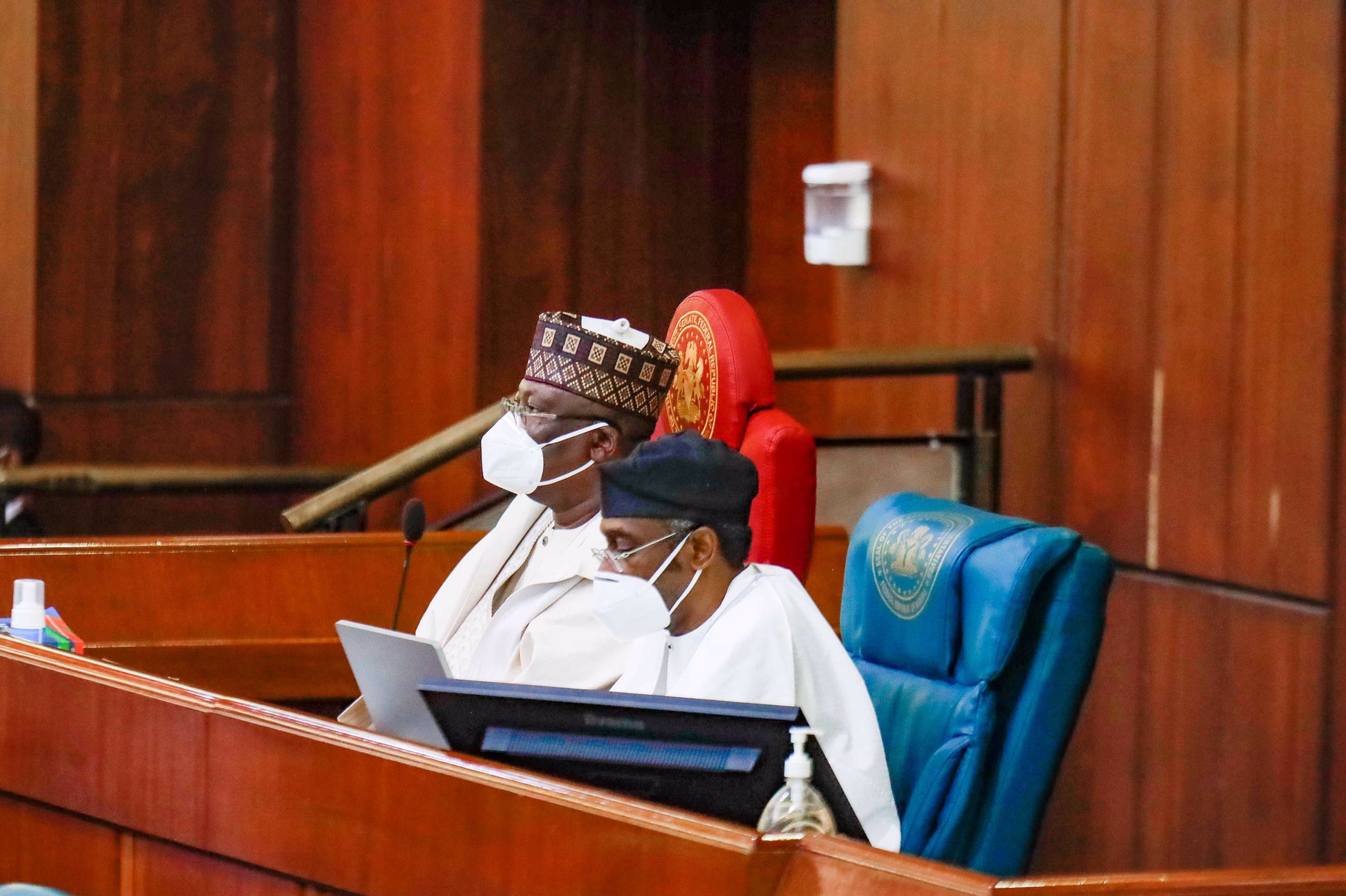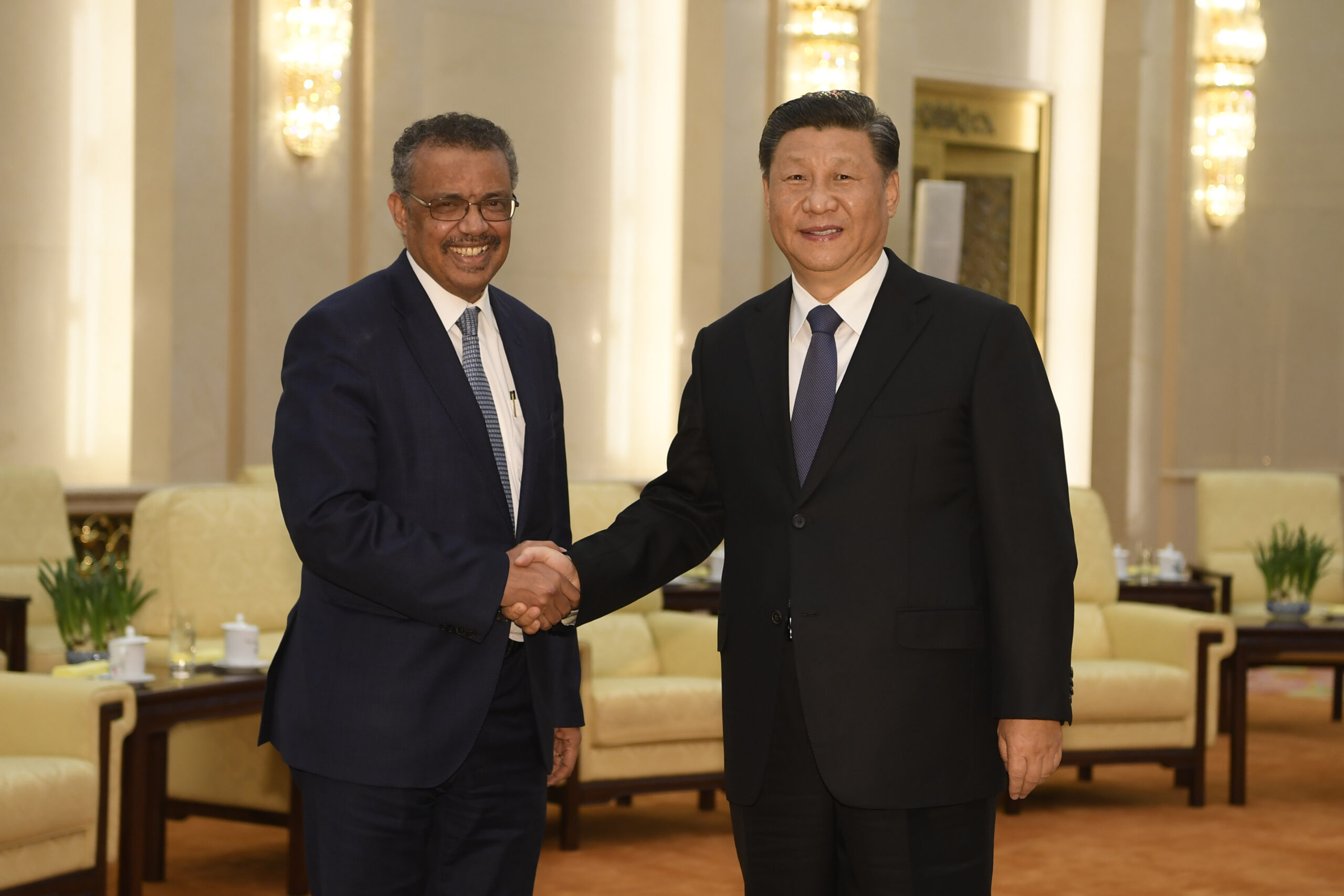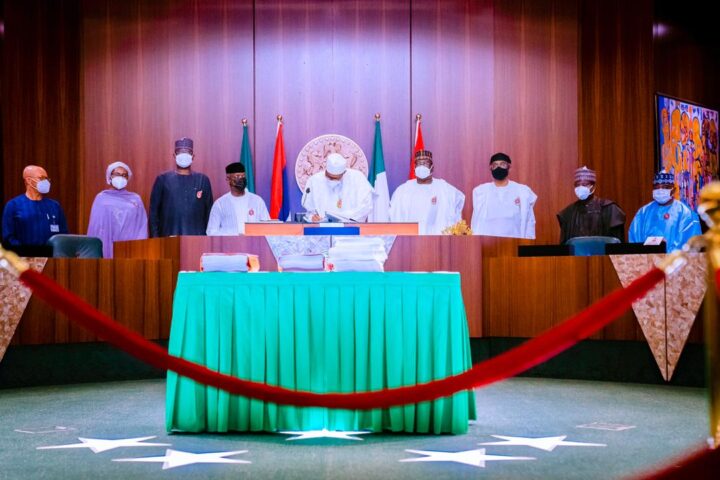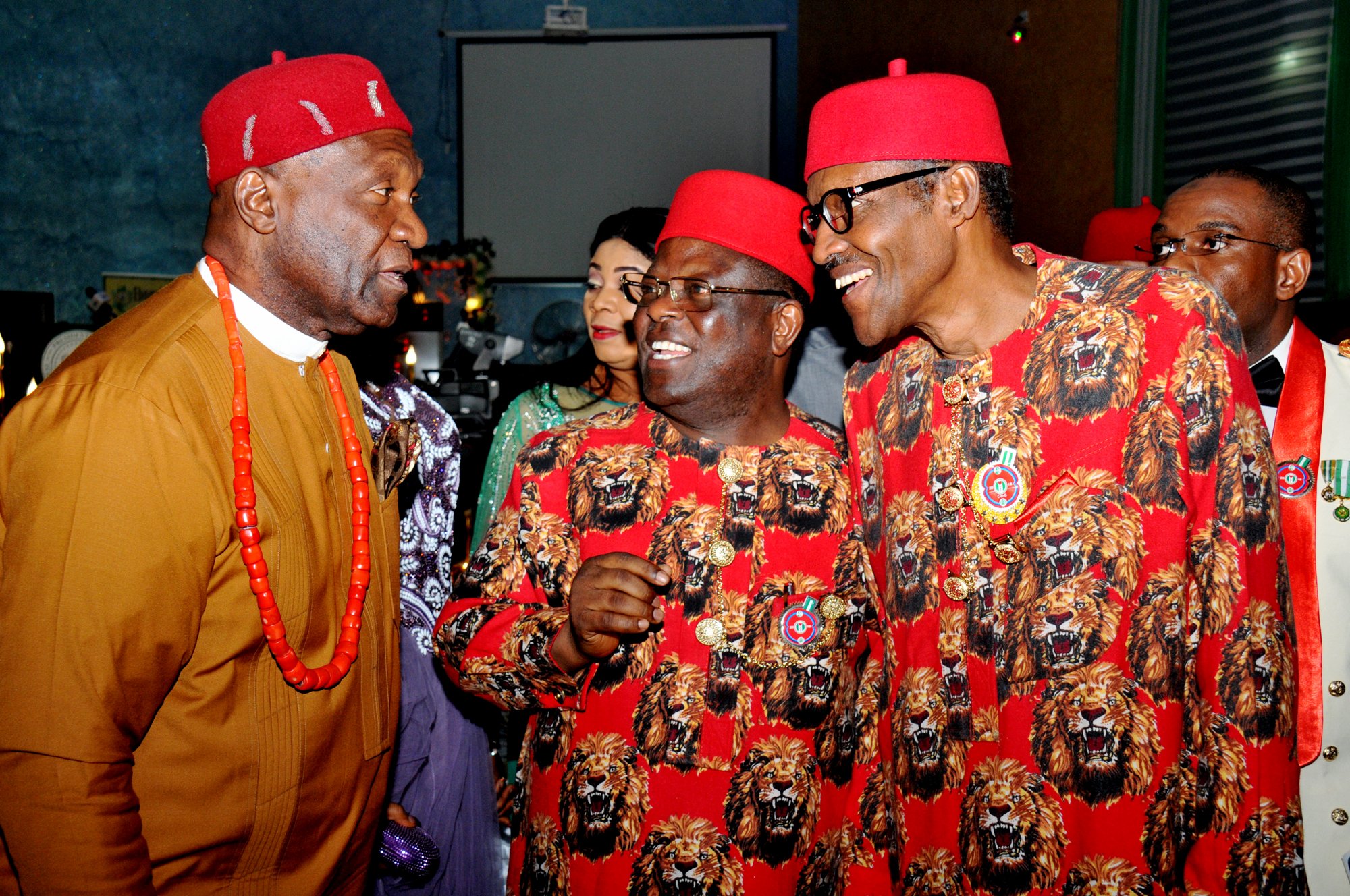The year 2020 can best be described as a year laden with surprises that not many people saw coming. It would be overstating the obvious to say it has been a rough year, especially as a result of the COVID-19 pandemic. However, despite the gloom cast by the coronavirus, the national assembly had its own share of intrigue, controversy, and drama. From the intense drilling of officials of the Niger Delta Development Commission (NDDC) which led to a fainting incident, to the accusations and counter-accusations involving juicy contracts allegedly awarded to lawmakers, 2020 has been a unique year for the legislative arm of government.
TheCable recounts some interesting moments at the national assembly that got Nigerians talking.
BUHARI’S U-TURN

Advertisement
In November, over 40 farmers were killed by Boko Haram insurgents in Borno state. The incident reignited the calls for President Muhammadu Buhari to sack the nation’s service chiefs. Worried by the attack which was condemned within and outside the country, the house of representatives, on December 1, summoned Buhari to appear before the lawmakers to brief them on his effort on tackling insecurity.
The move to summon the president, however, led to a rowdy session on the floor of the house as lawmakers were divided over the motion. However, the decision of the green chamber to summon the president is not new. In 2019, the president was summoned twice but he didn’t appear before the lawmakers.
This time, however, it appeared the president would turn up, as the house said Buhari agreed to honour the invitation.
Advertisement
“So, we are looking at December 10 or December 15. The president has broken the jinx by promising that he would appear before the house,” Benjamin Kalu, spokesman of the house of representatives, said.
But a day before his commitment to honour the invitation, the president made a U-turn, and Abubakar Malami, attorney-general of the federation (AGF), defended Buhari’s decision.
“The right of the president to engage the national assembly and appear before it is inherently discretionary to the president and not at the behest of the national assembly,” Malami said.
And Buhari did not appear before the parliament on the scheduled date. Malami’s explanation became a subject of controversy in the national assembly, while Nigerians took to social media to criticise the decision.
Advertisement
TENURE EXTENSION FOR NASS STAFF MEMBERS
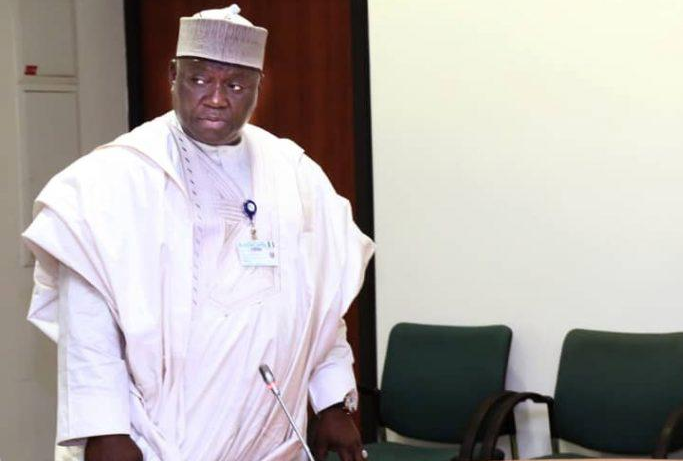
The bureaucracy of the national assembly was thrown into disarray over a controversial amendment that lingered for months. The National Assembly Service Commission (NASC) finally moved to address the matter after Mohammed Sani-Omolori, the clerk who wanted to remain a little longer in his position, ignored queries and calls to leave office after he was due for retirement.
The commotion erupted over an amendment tagged “Retirement Age and Conditions of Service Bill” which raised the retirement age of civil servants in the legislative arm from 60 to 65 years, while maximum years of service was increased from 35 to 40 years.
The amendment, which was passed by the eighth national assembly, contradicted the civil service rules which stipulate 60 years of age or 35 years of pensionable service as requirements for retirement, with the exception of judicial officials.
Advertisement
Although the amendment covers all staff of the national assembly commission, Sani-Omolori and some top officials of the NASC, looked to be the main beneficiaries.
However, after some back and forth, Sani-Omolori was finally forced to retire following an approval by the NASC on July 15.
Advertisement
AKPABIO’S ‘OFF YOUR MIC’ DRAMA AND PONDEI’S FAINTING
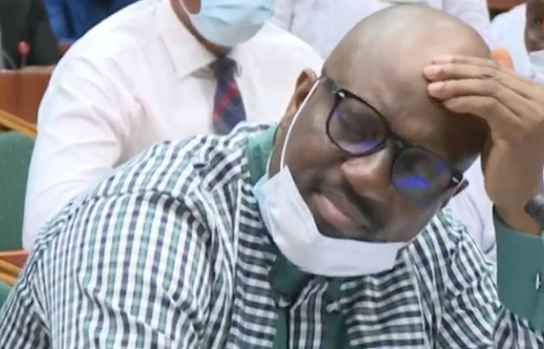
An investigation into the activities of the Niger Delta Development Commission (NCDC) unearthed various controversial contracts, and heralded dramatic scenes at the national assembly. The events would later produce the “it’s okay, off your mic” saying that became popular across social media in the second half of the year.
Advertisement
Kemebradikumo Pondei, former acting managing director of the NDDC, fainted while testifying before the house of representatives committee probing the alleged mismanagement of N81.5 billion by the interim management of the commission.
The incident caused a pandemonium, with dramatic efforts — including blowing air into his mouth — made to revive him. He was later rushed out of the venue of the sitting. Femi Gbajabiamila, speaker of the house, later announced that the acting MD might not be asked to return for the sitting.
Advertisement
Subsequently, it was the turn of Godswill Akpabio, minister of Niger Delta affairs, but he also came with his ‘suitcase of controversial actions’. The former governor of Akwa Ibom state was summoned by the house of representatives committee on NDDC to answer questions on alleged misappropriation of N40 billion. However, the “uncommon” minister turned the probe against the house which provoked Thomas Ereyitomi, chairman of the committee to interrupt him with “it’s okay” repeatedly, and eventually “off your mic”.
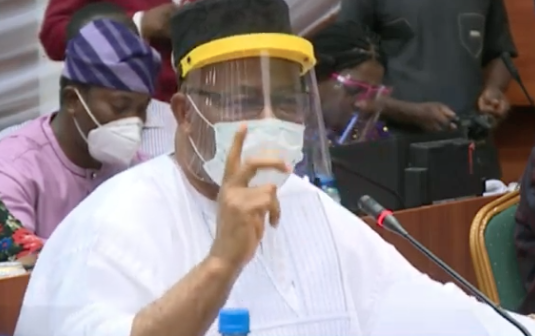
Ereyitomi made several attempts to stop Akpabio, who told the house that the lawmakers were the greatest beneficiaries of the NDDC contracts. Before this time, Akpabio had accused Peter Nwaoboshi, a member of the senate panel probing the NDDC, of being a major beneficiary of the alleged misappropriation in the agency. But Nwaoboshi fired back, accusing Akpabio of awarding a N300 million NDDC fencing contract to himself.
The NDDC probe brought forth a season of extended controversies.
NGIGE vs FALEKE AND THE MUSHIN BOY EXCHANGE
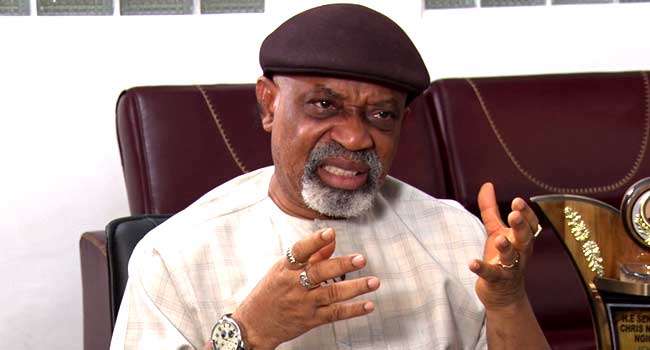
There was a drama between Chris Ngige, the minister of labour and employment, and James Faleke, a lawmaker, when the former appeared before a house of representatives ad-hoc committee in July.
Faleke, who represents Ikeja federal constituency, is a member of the ad-hoc committee investigating the suspension of the management of Nigeria Social Insurance Trust Fund (NSITF), an agency under the minister’s supervision. There had been a controversy over the suspension of the management of the NSITF.
Ngige, before answering questions, had started by saying that members of the committee were his younger brothers, except Faleke whom he said might be up to 60.
Faleke interrupted the minister, saying he was well over 60, but the minister said the lawmaker was a “small boy”, while he is of the same age bracket as Bola Tinubu, national leader of the All Progressives Congress (APC), whom Ngige referred to as Faleke’s mentor.
“So you are near my age. At least I am seven years older than you. I’m the same age with your mentor in Lagos, Asiwaju,” the minister said.
“And I was governor with him at the same time. He was a senator; I was a senator. I am a two-time minister; he isn’t a two-time minister.”
Again, Faleke interrupted saying Tinubu “won all his elections very well”. The remark appeared to be a mockery of Ngige whose election as governor of Anambra state was nullified in 2006.
Responding again, Ngige said: “No problem about that. Just like you won your own in Kogi state very well. And you are now the deputy governor and governor of Kogi state.”
Faleke, who was running mate to Abubakar Audu in the 2015 Kogi governorship election, was denied the governorship ticket when Audu suddenly died just before he was declared winner of the poll.
The verbal attack ended the sitting for the day.
KEYAMO’S OUTBURST
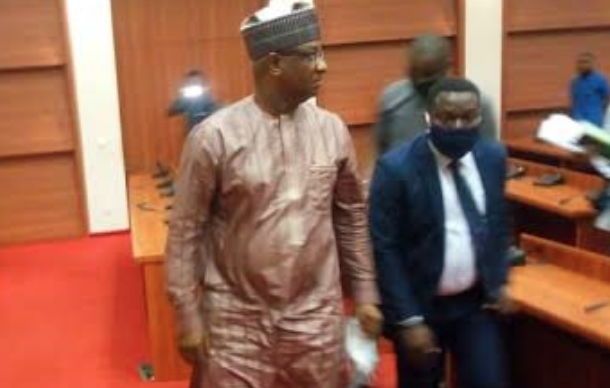
In April, President Muhammadu Buhari gave approval for the employment of 774,000 Nigerians.
In June, Festus Keyamo, minister of state for labour and employment, engaged lawmakers in a verbal war over the recruitment by the National Directorate of Employment (NDE). The outburst played out at the interactive session between the minister and members of the joint committee of the national assembly on labour.
Trouble started when the committee requested that Nasiru Ladan, director-general of the NDE at the time, explain the composition of a 20-man committee inaugurated by the ministry for the implementation of the project. Ladan — who has now been relieved of his appointment — could not adequately defend the N52 billion budgeted for the recruitment, and the lawmakers were left with the impression that the NDE was not in control of the programme.
At this point, the proceeding became rowdy with Keyamo and some lawmakers shouting at the top of their voices.
While shouting, Keyamo said: “How can you expose corruption without the cameras? How can, how can you expose it? I must respond to what he said. You cannot say something and I won’t respond. It is wrong.”
The shouting spree continued as Keyamo snapped, violently hitting the table as the lawmakers threw questions at him, accusing him of hijacking the project from NDE, and alleging lopsidedness in the entire programme.
The minister’s outburst irked the lawmakers who demanded that he apologise for his behaviour, but Keyamo refused, insisting that he had done nothing wrong to warrant an apology.
Keyamo’s subtle threat to walk out of the meeting further infuriated the lawmakers who asked him to leave, if he wanted to. When he refused to apologise, the lawmakers reached a resolution and asked Keyamo to leave the meeting.
In July, alongside the senate, the lower legislative chamber suspended the programme, after alleging that they had been sidelined. The lawmakers insisted that the programme would remain suspended until the federal government explained all the grey areas and the modalities for the recruitment.
The showdown continued in December when the house of representatives asked the ministry of finance, budget and national planning not to fund the programme scheduled to kick off in January 2021.
PERSONS WITH DISABILITIES MARCH TO NATIONAL ASSEMBLY
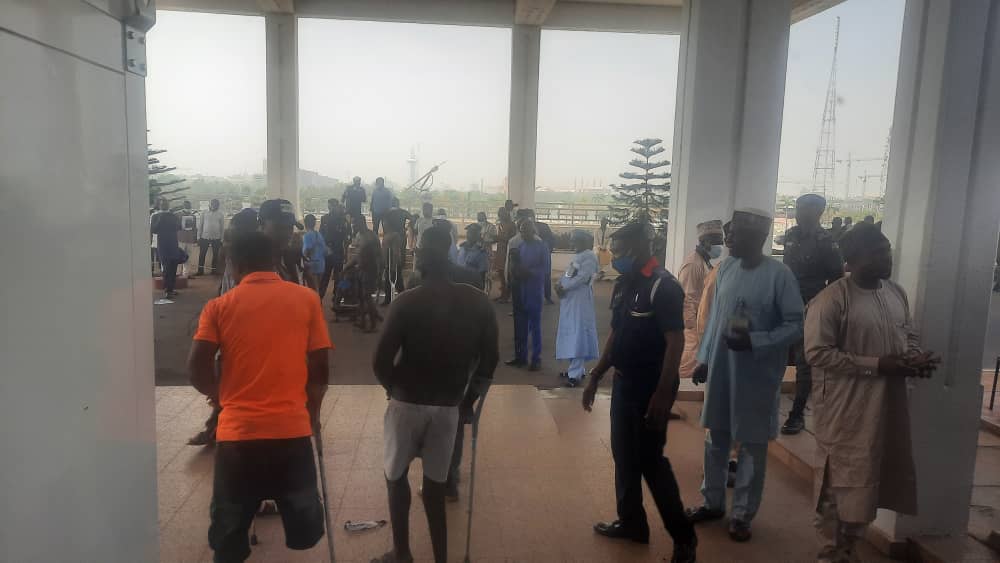
Marginalised as they considered themselves, persons with disabilities (PWDs) arrived at the national assembly on December 17 from far away Niger Delta for a protest.
The group said they were angry because lawmakers who promised to meet with them failed to do so. The demonstration turned chaotic after the group overpowered security officers at the main gate of the legislative complex, and made their way to the entrance of the main lobby where police threw tear gas canisters at them.
Angered by the reaction of the police, the protesters attacked a sergeant-at-arms with crutches and a chair.
“We are representatives of the Niger Delta. We came here to demand for what is ours because in everything we have been marginalised – even jobs we don’t have. We were here when the disability bill was passed into law, but since we gave these people our proposal, they have not listened to us,” Rawlings Etim, leader of the protest, said.
The situation was eventually brought under control, after lawmakers addressed the protesters.
CHINESE LOANS AND NIGERIA’S SOVEREIGNTY
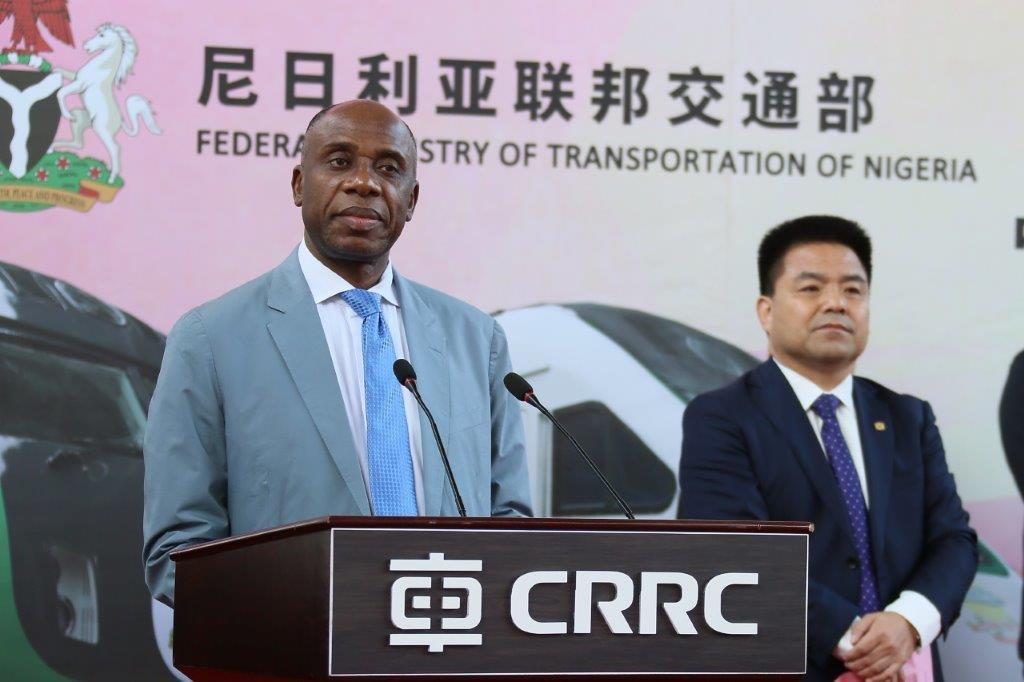
In July, a house of representatives panel raised the alarm over clauses allegedly conceding Nigeria’s sovereignty to China in a loan agreement.
A $400 million loan was obtained for Galaxy Backbone, the federal government’s information and communication technology (ICT) agency, in 2018. The loan agreement came to light at an investigative hearing conducted by the house committee on treaties and agreements chaired by Nicholas Ossai, a lawmaker from Delta state, when Rotimi Amaechi, minister of transportation, appeared before the panel.
The controversial clause in the agreement provides that “The borrower (Nigeria) hereby irrevocably waives any immunity on the grounds of sovereign or otherwise for itself or its property in connection with any arbitration proceeding pursuant to Article 8(5), thereof with the enforcement of any arbitrary award pursuant thereto, except for the military assets and diplomatic assets.”
Former President Goodluck Jonathan was dragged into the controversy, when Amaechi stated that the previous administration also signed similar agreements. However, checks by TheCable clarified the controversy generated by the minister’s position.
Amaechi also appealed to the house for understanding, stating that while he wasn’t asking them to stop the probe, such actions should not be seen to delay the process of securing funds to improve the transport sector.
“The economy of this country can only be propelled by transportation. We don’t mind this investigation but can we please shift it to December or January when we would have possibly taken these loans,” he said.
“Once we get these loans, chairman, turn me upside down, I will answer you. There are rumblings up there in China and there are loans we have asked for.
“If your government is not in agreement with this — don’t forget that there are all sorts of allegations against China here and there — we can stop. The moment it is stopped, the following things will happen — Lagos-Ibadan is not completed.”
The attorney-general of the federation eventually weighed in, and gave the assurance that the federal government will protect the country’s sovereignty.
“Contentious issues will not only be addressed, but other implications will be analysed with a view to making informed decisions in the best interest of the country and for the betterment of Nigerians,” Malami had said.
Add a comment
